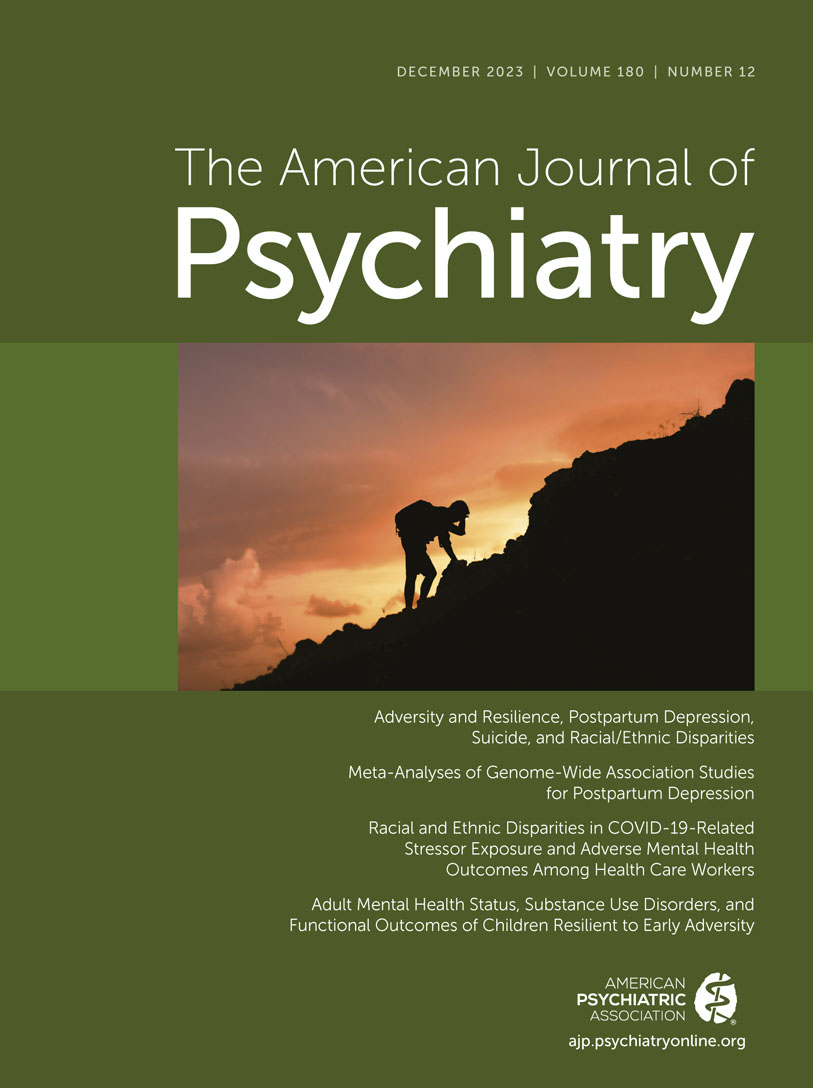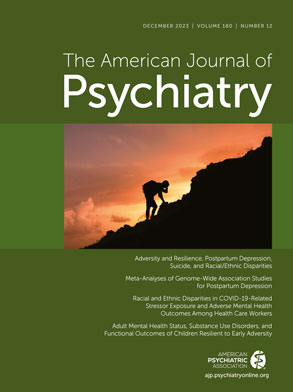On March 1, 2022, during his first State of the Union Address, President Joseph R. Biden outlined an ambitious three-part strategy to contend with the national mental health crisis. Designating mental health a key pillar of his “Unity Agenda,” the president called for “creating healthy environments, strengthening system capacity, and connecting more Americans to care.” (
1) On February 7, 2023, during his second State of the Union Address, President Biden highlighted the administration’s accomplishments in the mental health arena over the past year. Special mention was made of the launching of the 988 suicide and crisis lifeline and of the signing of the
Bipartisan Safer Communities Act (Public Law No: 117-159) which provides for the establishment of mental health services in school settings. It is against this backdrop that President Biden recently signed into law the
Consolidated Appropriations Act,
2023 (CAA; Public Law No: 117-328) replete with additional crucial investments in the improvement of the nation’s mental health care. In this commentary, we review the key mental health care advances ushered in by the CAA, outline challenges it leaves in its wake, and assess the likelihood of achieving the president’s vision to tackle the mental health crisis.
Several key priorities of the Association of American Medical Colleges (AAMC) and of the American Psychiatric Association (APA) were achieved courtesy of the CAA. Chief amongst these priorities was the addition of 200 Medicare-funded graduate medical education (GME) slots, of which at least 100 are to be assumed by psychiatry proper or a psychiatric subspecialty. Seeking to prioritize the allocation of newly added GME positions to areas of highest need, the CAA stipulates that at least 10% of the positions in question are to be distributed to rural hospitals and to hospitals which are located in HRSA-designated health professional shortage areas (HPSAs), respectively. On the clinical front, the CAA also sees to the extension of current Medicare-supported telehealth flexibilities by delaying the 6-month in-person visit requirement for behavioral telehealth care until December 31, 2024.
Amongst the Administration’s efforts to strengthen system capacity, the dedication of over 100 Medicare-supported GME positions to mental health is bound to partially offset the paucity of behavioral health providers. At present, almost one-fifth of adults afflicted with mental illness report challenges in attaining the support and treatment they require (
2). It follows that the CAA contribution, though all-important, is unlikely to suffice. According to physician workforce projections of the AAMC, an estimated 6,100 additional psychiatrists will be required to eliminate HPSAs (
2). The CAA is noteworthy, nonetheless, in that it is only the second time since the institution of the Medicare-funded GME cap in 1997 that Congress expanded the number of Medicare-supported GME positions. In so doing, the CAA is following in the footsteps of the
Consolidated Appropriations Act of 2021 which funded 1,000 new Medicare-supported GME positions with hospitals in rural and underserved communities in mind. Although the CAA does not stipulate how the newly awarded GME slots will be allocated amongst psychiatric subspecialties, special consideration should be given to strengthening the child and adolescent psychiatric workforce. In the face of ever-increasing rates of mental illness amongst youth populations that preceded the COVID-19 pandemic, the scarcity of child psychiatrists must be deemed especially severe.
Beyond the previously mentioned targets of the CAA, the newly enacted law also seeks to support primary care institutions intent on implementing collaborative care models (CCMs). This initiative seeks to improve patient access by integrating evidence-based mental health care into the primary care setting with an eye toward expanding the impact of mental health providers. Inspired by a seminal study on the treatment of depression in primary care settings, the promise of CCMs has since been bolstered by over 80 randomized-controlled trials, which often proved CCMs superior to standard care for common mental health conditions such as anxiety and depression (
3). The CAA affords up to $2 million in funding to eligible entities intent on facilitating the adoption of integrated psychiatric care via CCMs. Can the CCMs be scaled equitably to address a wide range of mental health problems to yield meaningful population health improvement? Recent studies provide a promising outlook (
4). Increasingly, primary care visits involve the treatment of mental health concerns, underscoring the imperative of an organizational structure that supports primary care clinicians in the management of common mental health disorders.
With respect to the mental health of the physician workforce itself, the CAA amends section 1877(e) of the Social Security Act (42 U.S.C. 1395nn), commonly known as the
Stark Law or the physician self-referral law. The statute in question prohibits referrals for certain health services payable by Medicare to entities with which there exists a financial relationship with the referring physician. The CAA establishes a new exception to the
Stark Law that allows entities to provide bona fide mental health services for “the primary purpose of preventing suicide” and “improving mental health and resiliency,” an exception that is notably inclusive of physicians who hold staff appointments or possess clinical privileges at an offering entity such as a hospital. In his 2023 State of the Union Address, President Biden built upon this initiative by announcing that the CDC will launch a new hub of “mental health and resilience resources to health care organizations in better supporting their workforce” to address the “crisis levels” of burnout (
1). The increased attention to the mental health of the workforce is long overdue. One also wonders whether these policy initiatives will address the most relevant upstream challenges. For example, recent data demonstrate a direct correlation between increasing work hours and depressive symptoms in the workforce, which begs the question of whether physicians require more resiliency or more respite (
5).
The focus of the CAA on improving the nation’s mental health care with evidence-based and practical approaches is a substantive step in the right direction. Moving forward, however, there exists uncertainty around the extent to which the federal government can further seek to achieve President Biden’s vision for improving the nation’s mental health. On June 3, 2023, the Fiscal Responsibility Act of 2023 (Public Law No: 118-5) was signed into law by President Biden, which enacted a 2-year suspension of the debt ceiling necessary to avoid a government default. While the suspension of the debt ceiling permitted the government to continue borrowing money to pay its bills, the law will also hold federal discretionary spending essentially flat for 2 years—a restriction that with inflation effectively amounts to a budget cut for agencies such as the National Institutes of Health and National Institute of Mental Health. Fortunately, the Fiscal Responsibility Act of 2023 does not contain rescissions that appear to affect the funds authorized by the CAA for increasing the number of GME slots nor for supporting the implementation of CCMs. As Congress deliberates on how to allocate the limited pot of discretionary spending available for fiscal year 2024, it is our hope that mental health care remains a key priority. After all, a comprehensive and integrated approach involving all levels of government will be required to achieve President Biden’s vision for improving the nation’s mental health.

